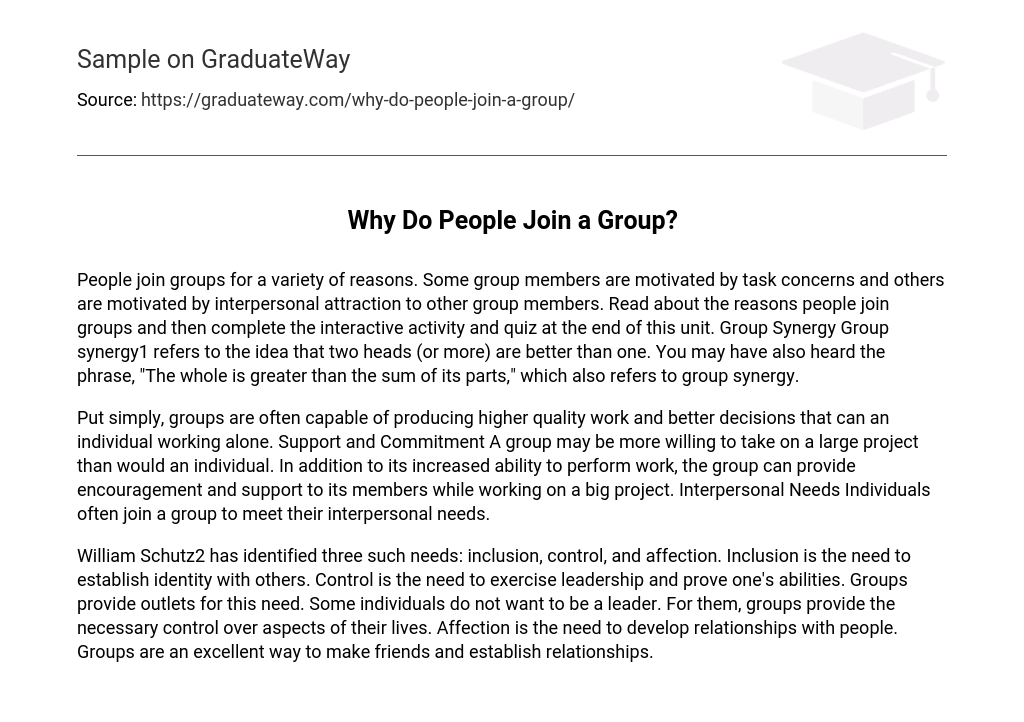People join groups for a variety of reasons. Some group members are motivated by task concerns and others are motivated by interpersonal attraction to other group members. Read about the reasons people join groups and then complete the interactive activity and quiz at the end of this unit. Group Synergy Group synergy1 refers to the idea that two heads (or more) are better than one. You may have also heard the phrase, “The whole is greater than the sum of its parts,” which also refers to group synergy.
Put simply, groups are often capable of producing higher quality work and better decisions that can an individual working alone. Support and Commitment A group may be more willing to take on a large project than would an individual. In addition to its increased ability to perform work, the group can provide encouragement and support to its members while working on a big project. Interpersonal Needs Individuals often join a group to meet their interpersonal needs.
William Schutz2 has identified three such needs: inclusion, control, and affection. Inclusion is the need to establish identity with others. Control is the need to exercise leadership and prove one’s abilities. Groups provide outlets for this need. Some individuals do not want to be a leader. For them, groups provide the necessary control over aspects of their lives. Affection is the need to develop relationships with people. Groups are an excellent way to make friends and establish relationships.





